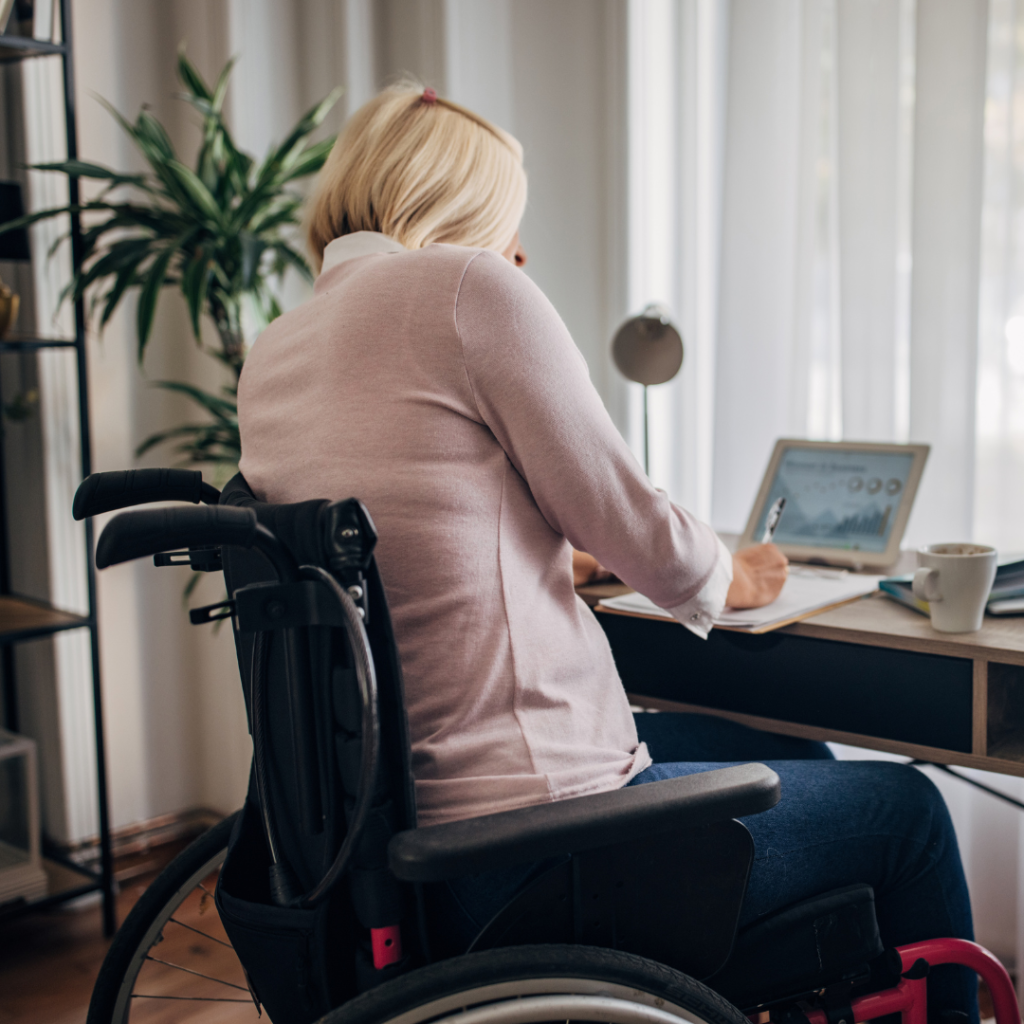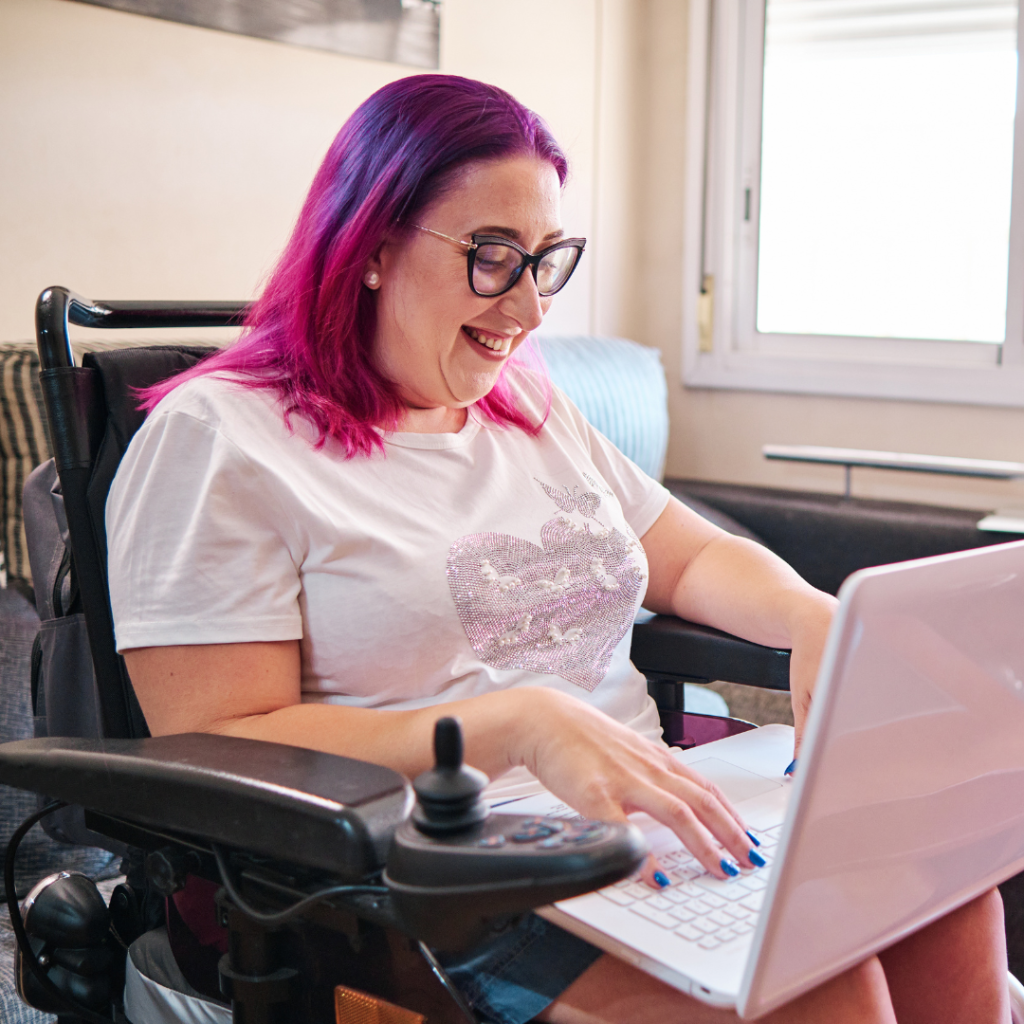
I am writing this from the point of being an ambulatory wheelchair user with chronic illness like fibromyalgia, ME/CFS, Long Covid and many other health issues.
A little while ago, I read on LinkedIn a post where the author had written about being honest about his needs as a disabled person. And feeling bad about it.
This was my comment:
“Feeling bad for basic needs and making ourselves more comfortable, when we simultaneously wouldn’t hesitated to do this for another person in a heartbeat.
I know the feeling.
I would be horrified to learn that someone else would be in pain, just for trying to be polite and not be seen as demanding.
However not requesting something for myself to spare the other person some inconvenience makes total sense to me.
But what if it is no inconvenience?
What if it makes them happy to help me, just as it makes me happy to help others.
Are we really protecting people by not speaking up or hindering their opportunity to stepping up as a human being, strengthening a feeling of community and belonging.”
So today, I am continuing my thoughts, exploring why we feel bad in the first place.
Of course I am making assumptions, that this will resonate with other people, whilst only being able to write from my own experience.
I don’t know what the author’s reasons were for his conflicting feelings and I am glad he spoke up and was given the support he needed.
I believe that we are making assumptions to predict someone’s reaction to keep ourselves safe.
As a child voicing my needs often resulted in me being humiliated and shamed.
The 70ties were fun.
Children were to be seen but not heard.
And we learned like the generations before us, that weak people don’t matter.
So now as adults, we are still questioning our worth, or value, our right to ask for the bare minimum.
Ableist tell us it’s not fair that we are getting special treatment, not realising that it’s actually about giving everyone the same starting point, nothing special about it.
We think we are adults when we turn 18 and discover that learning and growing never stops.
Finding the confidence to voice your needs and requests adaptations and reasonable adjustments without fear doesn’t come natural to everyone.
We are basing our expectations on our past experiences, since in the moment we are speaking up for ourselves, we are taking a risk.
And it’s not as if we are living in a society that is very positive towards disability and chronic illness.
Just recently the conversations about changes in PIP (Personal Independence Payments) which resulted in many disabled people voicing their fears of losing their independence and employment, since the PIP payment helps them to do what they are meant to do, stay independent, is just one example.
The pandemic showed that our request working from home, which was denied for years and then turned into, right, everyone works from home from tomorrow, is now taken back with the demand to return to the office.


Reasonable adjustments taken back, our productivity questioned, when in fact traveling and sitting in a noisy office is wasting valuable energy, part time jobs are difficult to come by, and disability and chronic illness is treated sometimes either like a choice, blamed by a faulty life style, or something that could just be overcome, if we would just try harder.
What this means, is that some of us not only need to find our voice after experiencing suppression in childhood, we also have to defend ourselves in a society that blames us for costing too much, being lazy and work shy, whilst simultaneously under or non-funding research into our chronic illness, so there is no chance of finding a cure and getting better through treatment.
A lot of us are overachievers, who never saw their disability coming. Long Covid has helped to create an understanding in a way, no other chronic illness has managed before.
Still instead of demanding enough support, research, and jobs that are disability friendly, part time and from home, we are still treated as if we are partly to be blamed for our situation.
Having informed discussions on platforms like LinkedIn gives us a chance to educate each other, since disability and chronic illness doesn’t discriminate and even the healthiest and fittest of people could find themselves one day, in bed, unable to continue the job they loved.
As a society being disability friendly, well informed and trained protects and benefits all of us.
Even if it doesn’t affect you as the reader of this article, I would bet that you either have friends or family who are affected by chronic illness and/or disability.
Thanks to Facebook and other social media platforms we can now talk to each other. We are no longer as isolated and invisible as in the past.
We are discovering our voice, encouraging each other, and find tribes we fell we can fully belong to.
But we still need to be able to speak up for ourselves and others, normalising talking about reasonable adjustments, our needs, ambitions, dreams, hopes, and expectations.